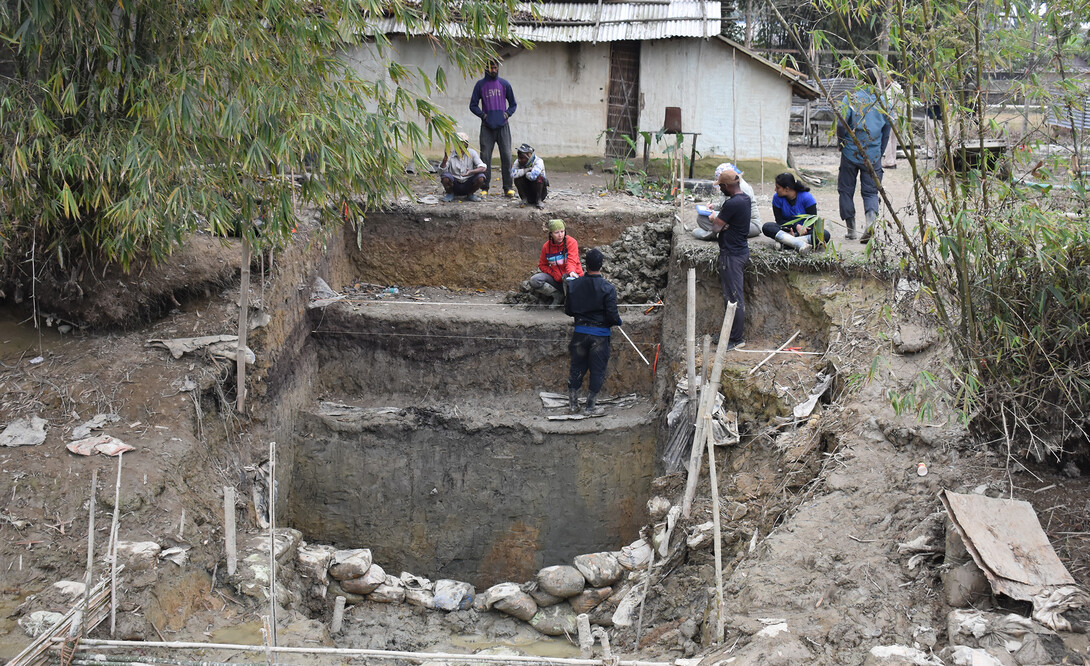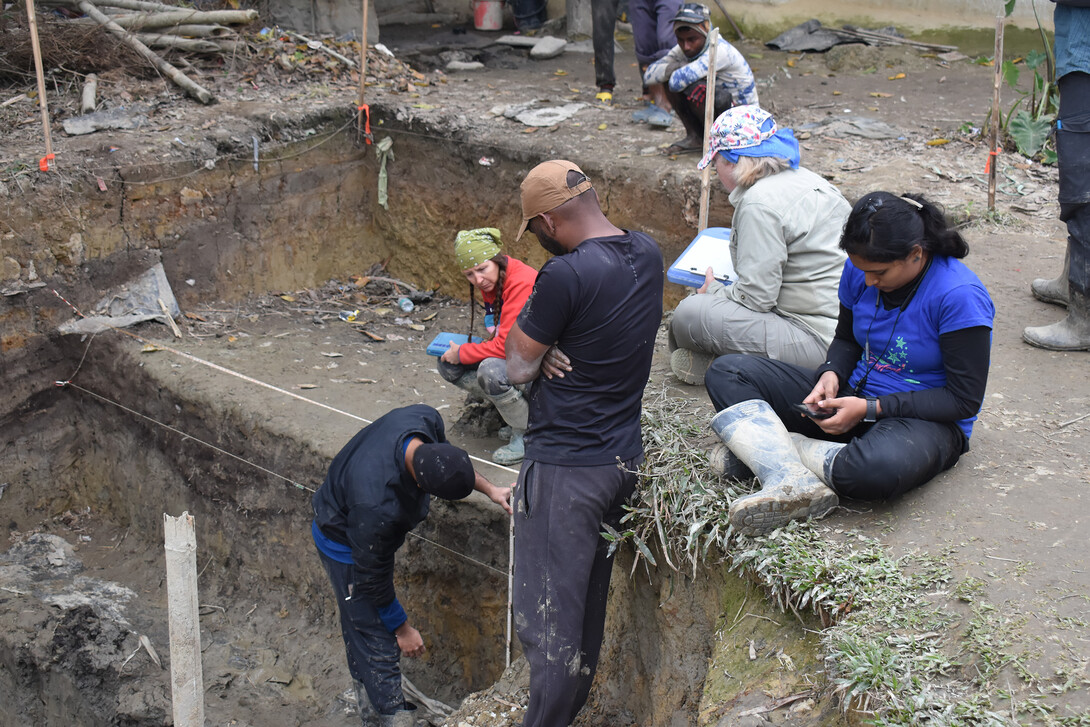
Nearly 80 years after the end of World War II, efforts are still underway to retrieve those who went missing in action — many lost in downed aircraft.
For more than two decades, William Belcher, associate professor in the University of Nebraska–Lincoln’s School of Global Integrative Studies and previously with the U.S. Department of Defense, has led or assisted in the excavation and recovery of these aircraft and the service members who piloted and manned them.
In the fall semester, he will lead specialized training for students in India, preparing the next generation of researchers doing this meticulous work. Belcher, a forensic anthropologist and archaeologist, earned a U.S. Fulbright-Nehru Distinguished Scholar Award, one of the most prestigious Fulbright faculty awards, and will partner with the National Forensic Sciences University in Gandhinagar, India, in Gujarat state, to teach a cohort of 10 students how to complete forensic excavations.

“We’ve developed a new diploma program in forensic archaeology, similar to a certificate program in other fields of study, where we’ll be teaching students and professionals how to excavate and recover evidence,” Belcher said. “It is quite an intensive course.”
Belcher said students will learn the process of forensic excavation from beginning to end, from understanding stratigraphy and how it relates to clandestine burials or mass graves, and the different equipment used, to mapping evidence in three dimensions and proper chain of custody and documentation for evidence collected.
The purpose behind this endeavor and the reason he sought a Fulbright award is to train new groups of Indians who can assist the Department of Defense in the northeastern part of the country to recover MIA service members and aircraft lost during World War II. The U.S. experienced many aircraft losses during World War II, but some of the areas where the losses occurred are inaccessible to American excavation teams because the areas border China and Burma (today known as Myanmar).
“This will build capacity in the number of people who will be able to excavate U.S. crash sites on the behalf of our government,” Belcher said. “One area is particularly mountainous, and there are about 250 airmen that have been lost in that area. In that general area, along the borders of China, Myanmar and India, there are about 600 individuals who have been lost from 250 to 300 planes, and we think about 250 of those individuals are in India.”
A partnership with National Forensic Sciences University has been in the works since 2020, when Belcher and Sophia Perdikaris, director of the School of Global Integrative Studies, visited India to develop a memorandum of understanding for future faculty and student exchanges, but those plans were waylaid by the COVID-19 pandemic.
The new diploma program is already popular. More than 100 Indian students applied to fill the inaugural cohort, and it drew applications from some students outside the country. Following the first semester, which will be led by Belcher and colleagues at National Forensic Sciences University, the program will continue to be offered.
Belcher will be in India from August until early January. Following the completion of the inaugural program, he plans to lead a student group on an excavation in the coming winter months.

“Currently, there’s only one or two excavations a year, and as we build capacity, the university will be able to go out six to seven times a year,” Belcher said. “In the future, I want our (Nebraska) students to be able to do training in India also. This would be a student exchange partnership.”
Belcher, who speaks Hindi, said he’s excited to work directly with students through this program.
“I have a lot of experience working in South Asia and I enjoy working with the people, but I’m usually there doing archaeological research or museum research, and only interact with a small group of colleagues,” he said. “Working with students will be a different experience, a much richer experience, so I’m looking forward to that.”







